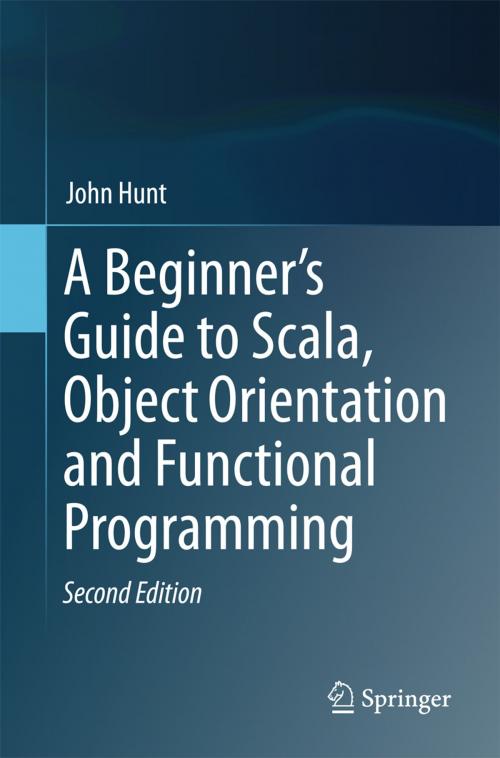A Beginner's Guide to Scala, Object Orientation and Functional Programming
Nonfiction, Computers, Programming, Programming Languages, General Computing| Author: | John Hunt | ISBN: | 9783319757711 |
| Publisher: | Springer International Publishing | Publication: | March 2, 2018 |
| Imprint: | Springer | Language: | English |
| Author: | John Hunt |
| ISBN: | 9783319757711 |
| Publisher: | Springer International Publishing |
| Publication: | March 2, 2018 |
| Imprint: | Springer |
| Language: | English |
Scala is now an established programming language developed by Martin Oderskey and his team at the EPFL. The name Scala is derived from Sca(lable) La(nguage). Scala is a multi-paradigm language, incorporating object oriented approaches with functional programming.
Although some familiarity with standard computing concepts is assumed (such as the idea of compiling a program and executing this compiled from etc.) and with basic procedural language concepts (such as variables and allocation of values to these variables) the early chapters of the book do not assume any familiarity with object orientation nor with functional programming These chapters also step through other concepts with which the reader may not be familiar (such as list processing).
From this background, the book provides a practical introduction to both object and functional approaches using Scala. These concepts are introduced through practical experience taking the reader beyond the level of the language syntax to the philosophy and practice of object oriented development and functional programming.
Students and those actively involved in the software industry will find this comprehensive introduction to Scala invaluable.
Scala is now an established programming language developed by Martin Oderskey and his team at the EPFL. The name Scala is derived from Sca(lable) La(nguage). Scala is a multi-paradigm language, incorporating object oriented approaches with functional programming.
Although some familiarity with standard computing concepts is assumed (such as the idea of compiling a program and executing this compiled from etc.) and with basic procedural language concepts (such as variables and allocation of values to these variables) the early chapters of the book do not assume any familiarity with object orientation nor with functional programming These chapters also step through other concepts with which the reader may not be familiar (such as list processing).
From this background, the book provides a practical introduction to both object and functional approaches using Scala. These concepts are introduced through practical experience taking the reader beyond the level of the language syntax to the philosophy and practice of object oriented development and functional programming.
Students and those actively involved in the software industry will find this comprehensive introduction to Scala invaluable.















